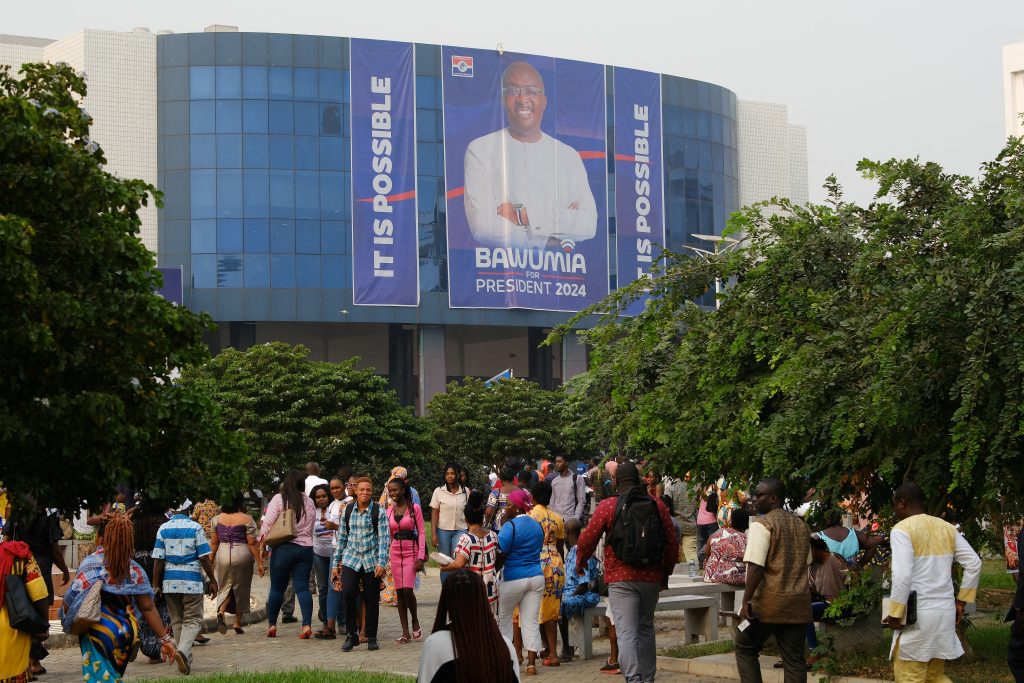As Ghanaians prepare to vote on December 7, the economy remains the defining issue in a tightly contested race to replace President Nana Akufo-Addo, who steps down after two terms.
The election pits Vice President Mahamudu Bawumia of the ruling New Patriotic Party (NPP) against former President John Mahama of the opposition National Democratic Congress (NDC).
Akufo-Addo’s second term was marked by economic turmoil, including record inflation, a debt default, and a $3 billion bailout from the International Monetary Fund (IMF). While inflation has eased to 23.2% from its 2022 peak of 54.1%, many Ghanaians still struggle with rising costs and economic uncertainty.

Ghana, once an economic beacon in West Africa, has seen its reputation tarnished. The cedi’s depreciation, surging poverty, and a 37% debt restructuring haircut have left deep scars. Retirees like Richard Tagoe, who lost his savings, symbolize the widespread public mistrust in government policies.
Economic recovery is in progress, with GDP growth rebounding to 5.8% in early 2024, but unemployment remains high, and the debt-to-GDP ratio is at a precarious 84%.
Vice President Bawumia has highlighted economic stabilisation efforts, but critics argue his close ties to the current administration undermine his credibility. Mahama has promised a fresh approach, vowing to renegotiate the IMF deal and focus on youth employment, agriculture, and infrastructure.
Analysts, including Oxford Economics, predict a narrow victory for Mahama, citing widespread dissatisfaction with the NPP’s handling of the crisis.
Beyond economics, Ghana faces security threats from terror spillovers and internal tensions between the NPP and NDC, exacerbated by accusations of pro-government bias in key institutions.
As Ghanaians head to the polls, the election will test their faith in leadership and their resilience in the face of adversity.


